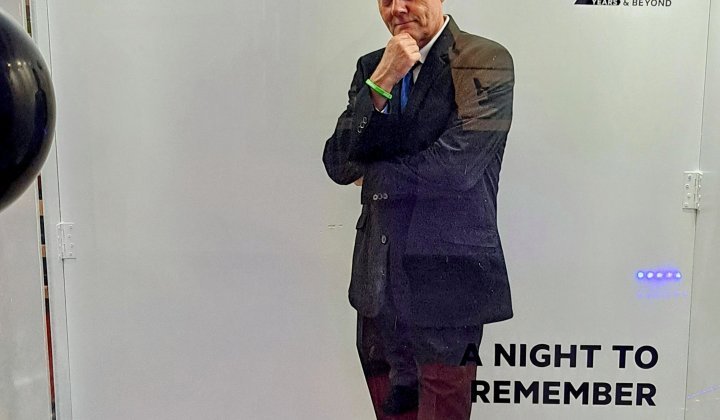Retail expert and MD of Avroy Shlain Cosmetics, Susan Mawer, facilitated the five 90-minute sessions. Panellists tapped into changing business models, informal markets and township retail, how landlords can entice customers and create experiential malls, and the evolution of the industry in 2021 and beyond. In Part One of this article, we report on some of the conference’s high-level insights. Part Two zeroes in on what is currently the sector’s most important driver – the emergence of digital.
Part Two
Seizing Change by the Digital Horns
Consumer expectations and demands are changing. Retailers are no longer setting the agenda; the customer is. Susan Mawer, managing director of Avroy Shlain, observed at the GIBS/Trade Intelligence Future of Retail Conference, that, “There is definitely a fundamental shift in the relationship between consumer and the retailer, and how that engagement takes place.”
This shift is, in part, being driven by the increased adoption of technology. “The importance of data analytics technology and e-commerce platforms are changing business models and [highlighting] the importance of agility and partnerships,” said Mawer. “Retailers are going to have to be brave – what they did yesterday isn't necessarily going to work today.”
To make relevant shifts, retailers need to understand the dominant consumer trends and then deliver products and services that meet those demands.
Understanding the consumer
For Kerry Elliot, head of the School of Retail Trade Intelligence, it was clear that brands will no longer be in control in the future. Rather, the shopper is now in the driver’s seat. “To understand the changes that are taking place in retail, we need to understand what is happening and what is shaping shopper behaviour,” said Elliot. She noted that consumer behaviour was being driven by personal, political and economic factors, as well as technology, among other things.
Elliot shared some of the findings of the Trade Intelligence 2020 Malls to Markets report, part of which explored consumer behaviour. The report identified five major trends influencing today’s consumer: value, convenience, experience, healthy living, and conscious living.
1. Value
When it comes to value, shoppers are looking to get more for their money. This means that retailers have to be innovative about how they offer specials. Trade Intelligence retail analyst, Andrea du Plessis, says 65% of African shoppers use broadsheet newspaper advertising to compare the pricing of products across retailers, 53% make a shopping list based on these broad-sheets, and 69% of African shoppers have switched brands to save money. There has also been a 20.4% increase in private label participation.
2. Convenience
Due to the Covid-19 outbreak, 37% of consumers have turned to online shopping. Of these, 80% said safety was the main reason. However, with people getting more comfortable with the online environment, 27% say they will continue to shop online, even in a post-Covid-19 world. Last year saw online shopping grow from 1.4% of total retail expenditure at the beginning of 2020, to 5% by October, with the report predicting it would reach 10% by year-end. Trade Intelligence believes that over the next five years, 57% of sales growth will stem from e-commerce.
3. Experience
Although shoppers are looking for value in their everyday purchases, they do spoil themselves every now and again. “The same shopper who is shopping for a great purchase, because they are savvy, is also shopping at Woolies for a chicken, or for Nike and Adidas because on the weekend they are looking for a beautiful shopping experience and that experience is the drawcard,” explains Elliot. This need for a positive experience also has to be translated into the online format. Mike Smollen, chief growth and innovation officer of Smollen Group, told delegates: “There was a massive number of first-time online consumers in the last year who would never have dreamt of ordering anything online. If those people had a good experience, chances are they are going to switch to online.”
4. Health
Elliot said the research indicated that people are increasingly concerned with healthy ingredients when it comes to health. In addition, packaging is becoming an important consideration. “Consumers don’t want to buy items that have been touched by other shoppers, but they are still looking at things like sustainability packaging,” says Elliot. Graham O’Connor, CEO of the Spar Group, also added another dimension to the health concern when he said, “What we won’t see change back [in a post-Covid-19 world] is the level of hygiene and cleanliness in stores.”
5. Conscious living
Now, more than ever, consumers are becoming aware of how their consumption is impacting others. Not only are there environmental concerns, but people want to see communities and the less fortunate benefitting from their spending. The research shows that people are turning their focus to local stores that support their immediate community. Initiatives such as sanitaryware for girls are becoming very popular among consumers, said du Plessis.
The movers, shakers and innovators
Understanding that the consumer is now in charge of the retail agenda, many new and innovative businesses are starting to take their place in the market. Over the last few years, there has been terrific innovation in the South African digital and online space. Delivery companies like Parcel Ninja have sprung up, and the informal economy – using WhatsApp and Facebook to sell products and services – are now also offering foot and bicycle deliveries. The pandemic has pushed companies to increasingly offer same-day delivery or even one-hour delivery, all in a bid to make online shopping easier and more convenient for consumers.
A noteworthy aspect of the conference was the inclusion of five local start-ups, all of whom are thinking out of the box and changing the way South Africans shop.
- OneCart – Lynton Peters, OneCart CEO, explains that the business enables users to shop from multiple stores in a single online transaction. It is an easy and convenient form of shopping, which has the added benefit of enabling shoppers to select the best delivery time for them.
- UCook supplies meal kits and craft meals. The company, which delivers a box with a recipe card and all the ingredients, prides itself on using ethically sourced, whole ingredients. “It’s healthy, wholesome food… We are activating aspirational cooking,” UCook’s David Torr said at the conference. The convenience and health benefits of these meals appeal to families with enough disposable income to afford prepacked meals three times a week.
- Faithful to Nature is described by its CEO, Paul Cook, as South Africa’s largest online retailer for natural products. The Cape Town-based company sells natural, healthy and environmentally friendly products. “The growth in e-commerce, and an omnichannel strategy, sits behind Faithful to Nature, as well as a stringent ingredient policy. We are about being natural and sustainable for the planet’s health,” Cook said.
- Aumax sells men’s watches online. The company’s business model is interesting. “Our delivery people are actually salespeople, which is unique in the market,” explained CEO Sakhile Maseko. This approach means the customer can see and feel the product before they buy it. The system also allows people to pay using cash, which is important to many Aumax customers. Aumax also guarantees a 12-hour delivery, which encourages shoppers to use the online service rather than visiting a mall. This offering, said Maseko, has been great for the business.
- Uber Eats is an offshoot of the Uber e-hailing system. “In 2014 we created a team and they were given one question: ‘What else do people want to get with the push of a button?’ This was when Uber started experimenting with food. We quickly realised that there was a huge appetite for fast, reliable food delivery,” explained Shane Austin, general manager of Uber Eats South Africa.
But success has come at a price. All the businesses have faced myriad challenges, from infrastructure development to theft to how to expand their market segments across diverse economic strata. They have all had to adapt on the fly to changing circumstances. But being small and agile has given them the edge and enabled them to experiment with solutions. Mawer summed it up when she commented to OneCart’s Peters, “You adapted as you progressed. No over-thinking the opportunity.”
A new business model in a nutshell
As the retail landscape evolves, innovation, agility and a customer-centric approach are what the new generation of retailers will have to subscribe to. This is a world where consumer demands dominate. Fortunately, technology facilitates many interesting and novel solutions that reflect the various needs of our economically and culturally diverse country.
Winning tips from the rising stars
New and small businesses have the advantage of being agile, and of being able to adapt to challenges quickly, using innovative solutions. Here are some tips from South Africa’s online retail pioneers:
- Be prepared to scale your business to include consumers from diverse economic strata. Affluent consumers offer a finite market.
- Cash before cards. The majority of South African consumers still prefer cash. Only offering online payments may severely limit your online consumer base.
- Innovation is key. Giving your online customers the service they demand requires innovative solutions. Can you take your online offering to your consumer? Can your delivery personnel also be your sales team?
- Make online easy. Keep upgrading and improving your online platform to ensure you are making the shopping experience appealing, easy and convenient for your shoppers.
- Good online experiences will keep people coming back. Speedy deliveries and hassle-free returns will encourage greater online loyalty.




